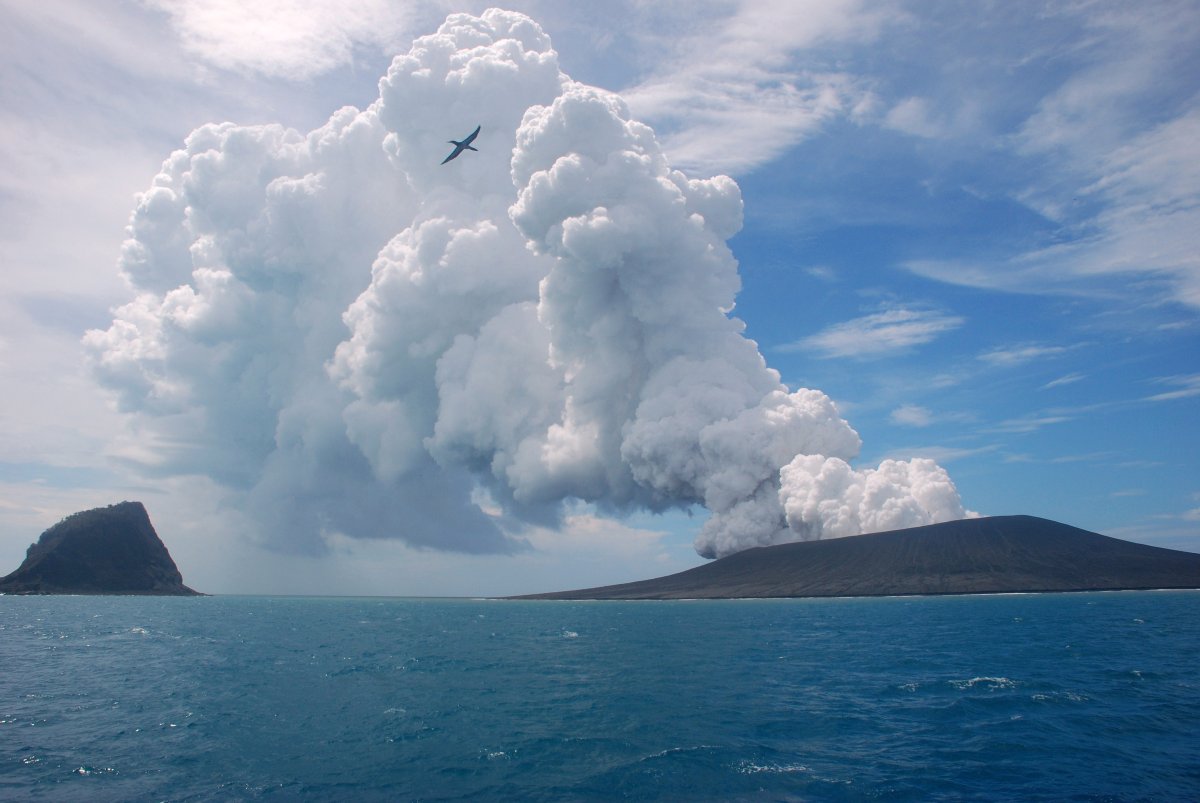Ash from the Hunga Tonga-Hunga-Ha'apai volcanic eruption is going to suffocate plants and turn rain into acid, scientists have said.
Tonga, which is situated in the South Pacific, is blanketed in toxic ash following an underwater volcano eruption and subsequent tsunami on Saturday. The volcanic eruption caused a four-foot tsunami wave, causing severe damage to Tonga's smaller islands.
While the volcano has erupted several times in recent decades, Saturday's was the largest to date and was felt as far away as Fiji, New Zealand, the United States and Japan. The eruption cut off communication lines for five days, and full internet connection will not be restored for at least a month.
As well as causing severe damage to infrastructure, the eruption has also affected the natural environment.
Daniela Schmidt, professor of paleobiology at the University of Bristol, UK, told Newsweek that the ash and acid rain caused by the volcano's gases will cause vegetation and marine life on the island to die.
Schmidt said: "The ash will be covering vegetation, which combined with the impacts of the tsunami being reported, [will] destroy plants, and cover those which survived. Without light, these plants will struggle to survive, impacting harvests.
"The gases from the volcano contain chemicals which will react causing acid rain and this, jointly with the ash falling on the ground, changes soil qualities. Negative impacts on the vegetation increase the vulnerability in the aftermath of intense rainfall and storms, frequent in this region."
Schmidt went on: "Tonga's ocean is teaming with life supported by coral reefs. The ocean currents will cover the ash over large areas but when it sinks, it will blanket the life underneath."
Cornell University scientists believe the seawater involved in the volcanic eruption will make the ash even more toxic and pose extraordinary environmental hazards.
Adrian Hornby, postdoctoral research associate in earth and atmospheric sciences at Cornell, said that presence of seawater in a volcanic eruption can create toxic elements in ash. He said that this amplifies the danger it poses to the natural environment.
Hornby said in a press release: "The involvement of seawater in the eruption releases enormous amounts of volatile species, for example, chlorine, into the ash plume. Together with gases released from the magma, this creates a cocktail that readily forms salts and acidic brines on the ash particles.
"Previous studies at Hunga Tonga-Hunga Haʻapai have shown that the ash carries some of the highest burdens of salts ever recorded, which may contain highly toxic species such as sulfer, chlorine and fluorine. These salts get deposited with the ash and can be easily leached by rainfall, causing an immediate hazard to water quality, agriculture and the natural environment."

Uncommon Knowledge
Newsweek is committed to challenging conventional wisdom and finding connections in the search for common ground.
Newsweek is committed to challenging conventional wisdom and finding connections in the search for common ground.
About the writer
Robyn White is a Newsweek Nature Reporter based in London, UK. Her focus is reporting on wildlife, science and the ... Read more
To read how Newsweek uses AI as a newsroom tool, Click here.








